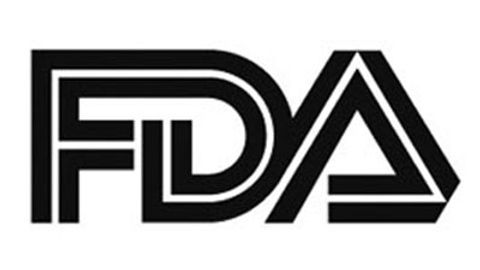FDA Accepts NDA for Umbralisib in Lymphomas, Grants Priority Review for MZL
The FDA has accepted a New Drug Application for umbralisib as treatment of patients with previously treated marginal zone lymphoma who have received at least 1 prior regimen with anti-CD20 therapy and for patients with follicular lymphoma who have received at least 2 prior systemic therapies.

The FDA has accepted a New Drug Application (NDA) for umbralisib (formerly known as TGR-1202) as treatment of patients with previously treated marginal zone lymphoma (MZL) who have received at least 1 prior regimen with anti-CD20 therapy and for patients with follicular lymphoma (FL) who have received at least 2 prior systemic therapies, according to an announcement from TG Therapeutics.1
The MZL indication has been granted a priority review with a Prescription Drug User Fee Act (PDUFA) target action date of February 15, 2021. The FL indication will receive a standard review with a PDUFA target action date of June 15, 2021. Additionally, no advisory committee meetings are currently planned for discussion of this NDA.
"We are extremely pleased with the FDA’s acceptance of our first NDA submission and look forward to working with the FDA during the review process. This is a significant achievement in our path towards accomplishing our goal of developing novel treatments for patients with B-cell diseases,” said Michael S. Weiss, executive chairman and CEO of TG Therapeutics, in the press release. “If approved, we believe umbralisib could become an important treatment option for patients with previously treated MZL and FL. We look forward to presenting the data from the UNITY-NHL trial that supported this NDA submission by year end.”
Both indications are supported by findings from cohorts of the phase 2b UNITY-NHL trial. The ongoing randomized trial is exploring the use of umbralisib monotherapy as well as umbralisib with ublituximab with or without bendamustine in the treatment of patients with previously treated non-Hodgkin lymphomas (NCT02793583).
Umbralisib is an investigational dual inhibitor of PI3K-delta and CK1-epsilon. In the study the agent was administered orally once daily.
Patients are eligible for the study if they have diffuse large B-cell lymphoma, mantle cell lymphoma, FL, or MZL, are relapsed or refractory to prior standard therapies, not eligible for high-dose therapy or autologous stem cell transplant, and have an ECOG performance status of 0 to 2. Those with hepatitis B or C virus, known HIV, prior exposure to a PI3K-delta inhibitor, allogeneic hematologic stem cell transplant, or recent surgery or treatment were excluded from the study.
The primary end point of the study is overall response rate (ORR) as determined by independent review committee, and the secondary end point is progression-free survival (PFS). The prespecified goal response rate was 40% to 50% ORR per cohort.
In the MZL cohort of the study, according to data presented at the 2019 American Association of Cancer Research Annual Meeting, single-agent umbralisib induced durable responses and led to tumor reductions in the majority of patients.2
Among 69 patients enrolled in the cohort, 38 patients were evaluable after being followed for at least 6 months as of the data cutoff date. The eligible patients had a median age of 67 years (range, 34-81) and had received a median of 2 prior lines of systemic therapy (range, 1-5).
After a median follow-up of 9.6 months, the ORR was 55%, consisting of 4 complete responses and 17 partial responses. The median duration of response was not reached (95% CI, 8.4-not reached). Additionally, 29% of patients had stable disease, with 6 of these 11 patients experiencing stable disease for 7 to 12+ months for a total clinical benefit rate of 84%. Ninety-one percent of patients experienced tumor reductions. At 1 year, the PFS rate was 71%.
Adverse events (AEs) of any grade observed in the cohort included most commonly diarrhea (45%), nausea (29%), fatigue (26%), headache (26%), cough (24%), and decreased appetite (21%). The most common grade 3/4 AEs included neutropenia (8%), febrile neutropenia (5%), and diarrhea (5%). Eight percent of patients discontinued treatment due to AEs.
Developer TG Therapeutics announced in October that the primary end point of the FL cohort was met, reaching the prespecified ORR target.3
The FL cohort included 118 treated patients with FL who had received at least 2 prior lines of therapy including an anti-CD20 monoclonal antibody and an alkylating agent.
Safety signals in the FL cohort were consistent with previous reports for umbralisib monotherapy and the agent was considered to be well tolerated.
The FDA previously granted umbralisib a breakthrough therapy designation for the treatment of patients with MZL and an orphan drug designation for both the MZL and FL indications.
References:
1. TG Therapeutics Announces FDA Acceptance of New Drug Application for Umbralisib as a Treatment for Patients with Previously Treated Marginal Zone Lymphoma and Follicular Lymphoma. News release. TG Therapeutics. August 13, 2020. Accessed August 13, 2020. https://bit.ly/3iHHclJ
2. Fowler NH, Samaniego F, Jurczak W, et al. Umbralisib monotherapy demonstrates efficacy and safety in patients with relapsed/refractory marginal zone lymphoma: A multicenter, open-label, registration directed Phase II study. Cancer Res. 2019;79(13):CT132. doi:10.1158/1538-7445.AM2019-CT132
3. TG Therapeutics Announces Positive Results from the UNITY-NHL Phase 2b Pivotal Trial Evaluating Umbralisib Monotherapy in Patients with Relapsed/Refractory Follicular Lymphoma. News release. TG Therapeutics. October 28, 2019. Accessed August 13, 2020. https://bit.ly/3kG59Mc
Examining the Non-Hodgkin Lymphoma Treatment Paradigm
July 15th 2022In season 3, episode 6 of Targeted Talks, Yazan Samhouri, MD, discusses the exciting new agents for the treatment of non-Hodgkin lymphoma, the clinical trials that support their use, and hopes for the future of treatment.
Listen
Later-Line CD19 and Bispecific Therapies Considered After CAR T
October 1st 2024During a Case-Based Roundtable® event, Christopher Maisel, MD, discussed third- and fourth-line therapy and barriers to bispecific therapy use in diffuse large B-cell lymphoma in the second article of a 2-part series.
Read More